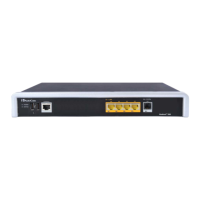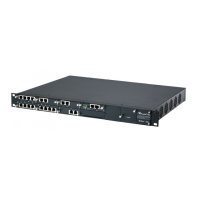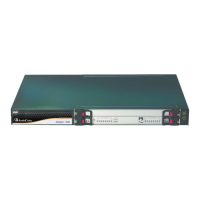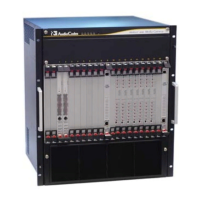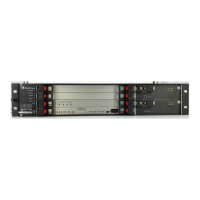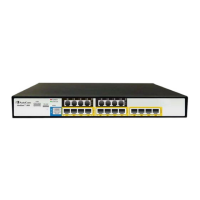User's Manual 474 Document #: LTRT-10532
Mediant 500L Gateway & E-SBC
Parameter Description
For example, if the called number is '1007766p100', the device
places a call with 1007766 as the destination number, then
after the call is answered it waits 1.5 seconds ('p') and plays
the rest of the number (100) as DTMF digits.
Additional examples: 1664wpp102, 66644ppp503, and
7774w100pp200.
Note:
For the parameter to take effect, a device reset is required.
Analog interfaces: The called number can include
characters 'p' (1.5 seconds pause) and 'd' (detection of dial
tone). If character 'd' is used, it must be the first 'digit' in the
called number. The character 'p' can be used several times.
For example (for FXS/FXO interfaces), the called number
can be as follows: d1005, dpp699, p9p300. To add the 'd'
and 'p' digits, use the usual number manipulation rules.
Analog interfaces: To use this feature with FXO interfaces,
configure the device to operate in one-stage dialing mode.
Analog interfaces: If the parameter is enabled, it is possible
to configure the FXS/FXO interface to wait for dial tone per
destination phone number (before or during dialing of
destination phone number). Therefore, the parameter
IsWaitForDialTone (configurable for the entire device) is
ignored.
Analog interfaces: The FXS interface send SIP 200 OK
responses only after the DTMF dialing is complete.
The corresponding global parameter is EnableDigitDelivery.
Dial Plan Index
dial-plan-index
[TelProfile_DialPlanIndex]
DialPlanIndex
Call Priority Mode
call-priority-mode
[TelProfile_CallPriorityMode]
Defines call priority handling.
[0] Disable (default).
[1] MLPP = Enables MLPP Priority Call handling. MLPP
prioritizes call handling whereby the relative importance of
various kinds of communications is strictly defined, allowing
higher precedence communication at the expense of lower
precedence communications. Higher priority calls override
less priority calls when, for example, congestion occurs in a
network.
[2] Emergency = Enables Preemption of IP-to-Tel E911
emergency calls. If the device receives an E911 call and
there are unavailable channels to receive the call, the
device terminates one of the channel calls and sends the
E911 call to that channel. The preemption is done only on a
channel belonging to the same Trunk Group for which the
E911 call was initially destined and if the channel select
mode (configured by the ChannelSelectMode parameter) is
set to other than By Dest Phone Number (0). The
preemption is done only if the incoming IP-to-Tel call is
identified as an emergency call. The device identifies
emergency calls by one of the following:
The destination number of the IP call matches one of
the numbers configured by the EmergencyNumbers
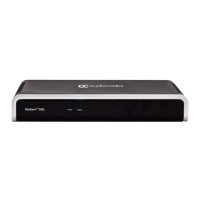
